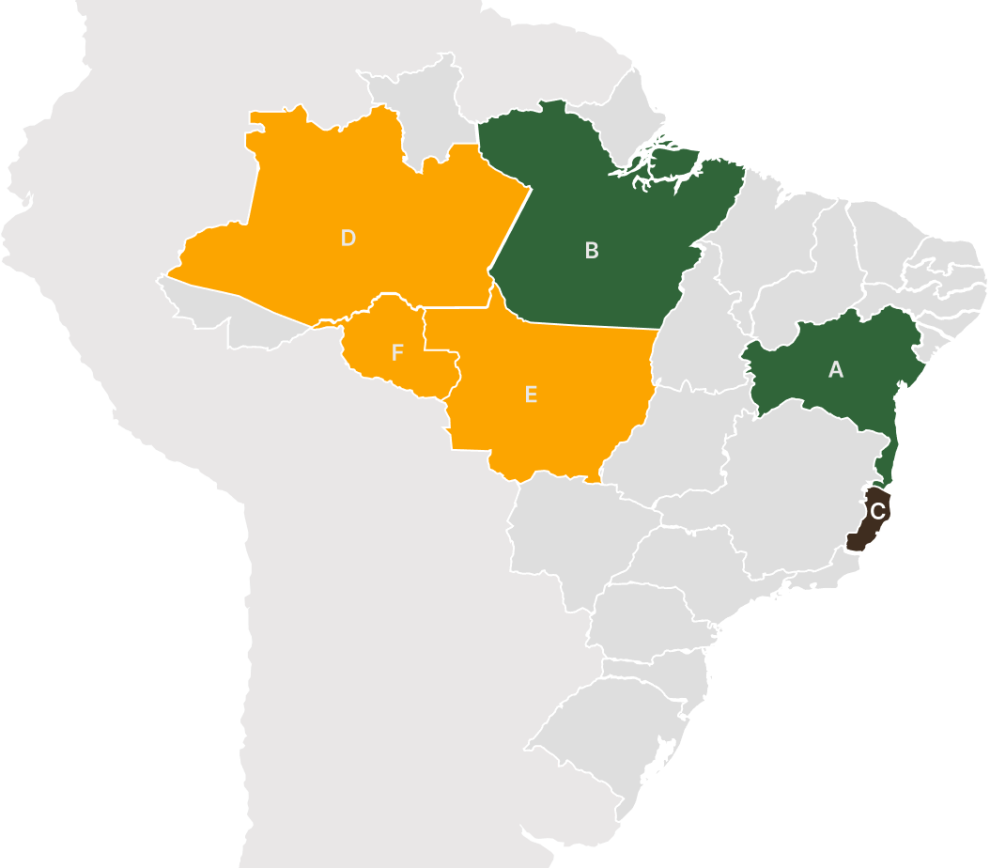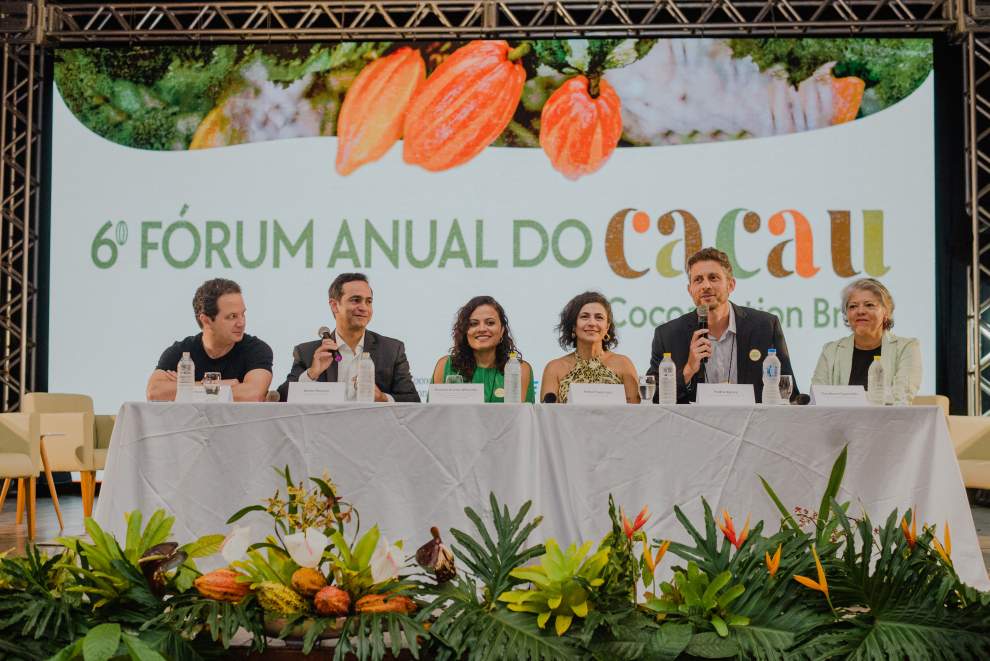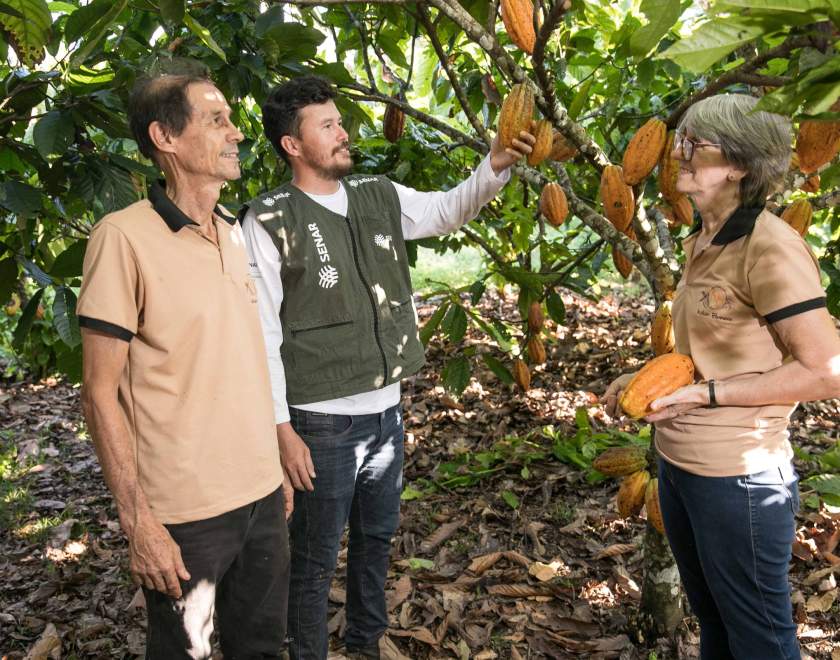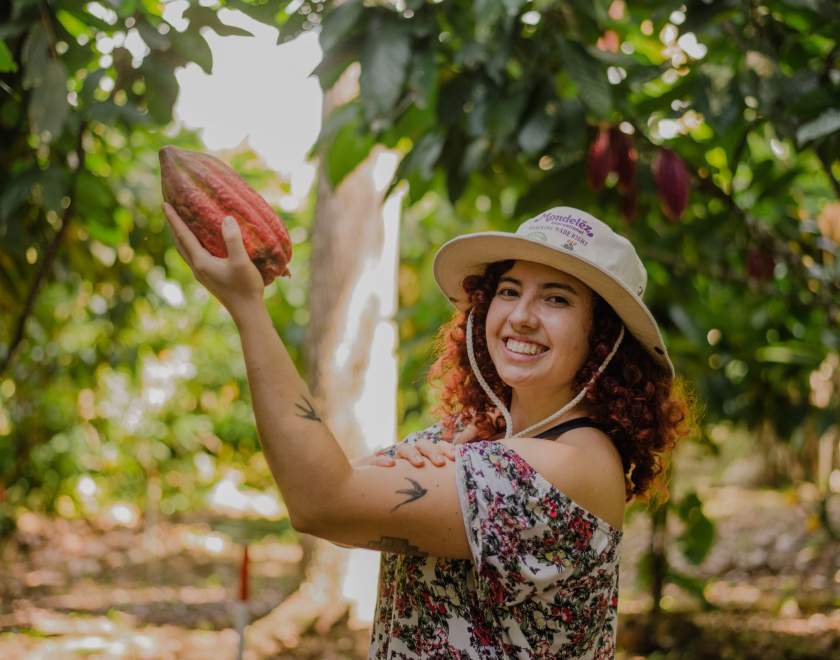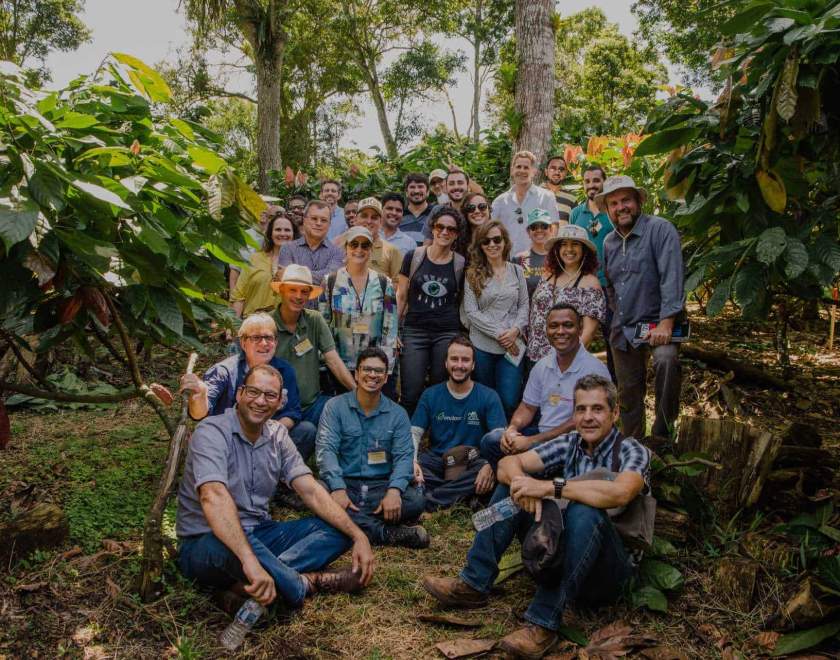Opportunities
Current opportunities in Brazilian cocoa include the country’s status as a leader in the areas of reforestation and biodiversity preservation by cocoa through the country’s agroforestry and cabruca production models. Recent developments in the sector in Pará also hold promise for modeling much higher farm-level productivity.
Challenges
Challenges noted are low productivity on smallholder farms that ranges from 200-500 kilograms per hectare, too few farmer organizations and low farmer incomes, pest and disease threats, in particular the devastating Frosty Pod Rot (Moniliophthora roreri), and a domestic supply gap that means Brazil must import approximately 70,000 tons of cocoa annually.
Expertise and lessons learned
WCF initiated efforts that led to the creation of CocoaAction Brasil facilitate company implementation and measurement of the strategy, identify opportunities to lend expertise in policy discussions, fill resource gaps, and generate new insights and learnings to amplify CocoaAction’s impact.
CocoaAction Brasil benefits further from lessons learned through the ongoing implementation of a similar initiative also known as CocoaAction that has been tailored to address needs in the West African nations of Côte d’Ivoire and Ghana, which are the world’s top two producers of cocoa.
CocoaAction Brasil is also drawing on the expertise of cocoa sector partners through a Technical Committee that includes Ceplac, Embrapa, Cocoa Innovation Center, agricultural extension agencies such as Emater-RO, Incaper, Emater-PA, Bahiater, and Empaer-MT, UTZ/Rainforest Alliance, AIPC, ABICAB, SENAR (National Rural Learning Service), and Brazilian representatives of the initiative’s chocolate and cocoa industry members.
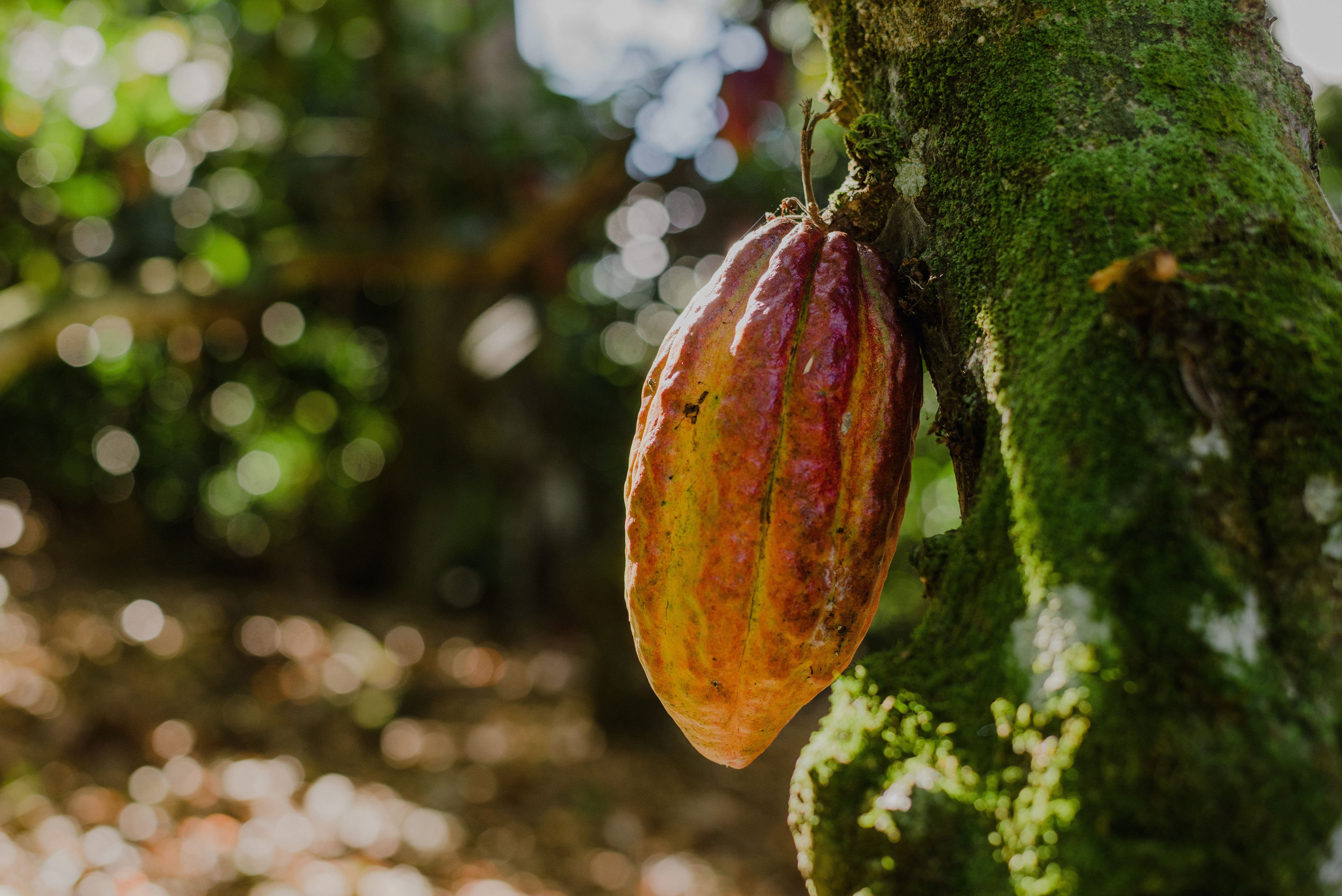
.jpg?token=572690d12dadfa9bd8d430ba85611c34)
.jpg?token=a32fd6004b5d1d35966102ca6d631bc3)
.jpg?token=ccb37cd47cb5fa5d538ed8ee7b55f674)
.jpg?token=15bfe5a815fe343801a7733bc1f7a557)
.jpg?token=9a56bb8edba5bf98b3a58dc54dc975c9)
.jpg?token=90518b75035126fe70c28f3e16eb5f26)
.jpg?token=9d5ef75180c8d1aa82edf4a740b74c08)
